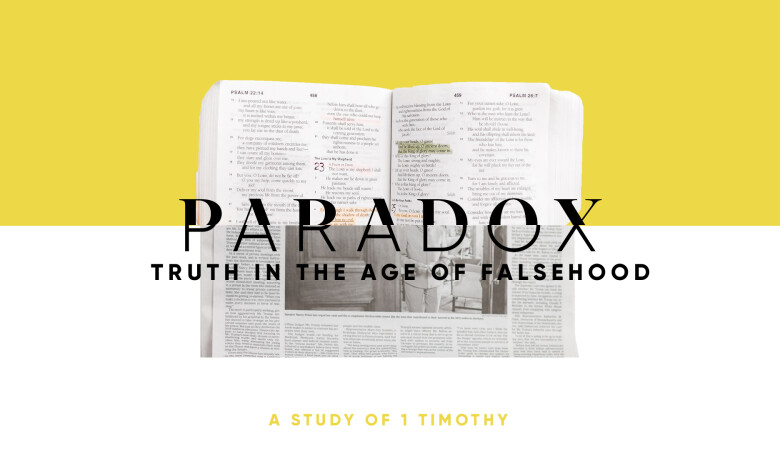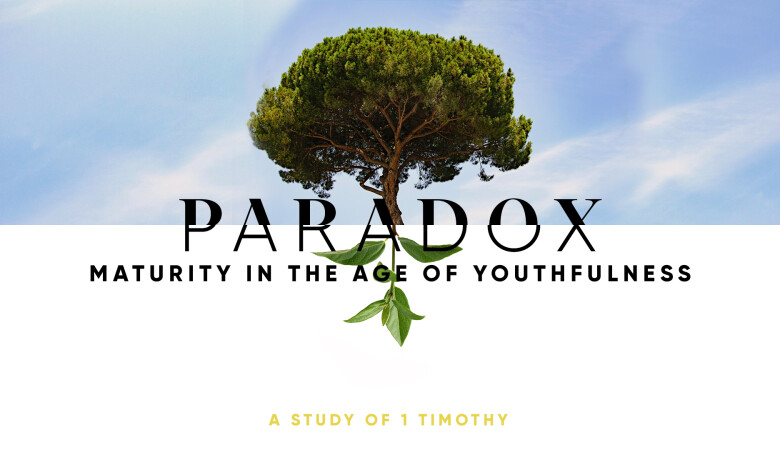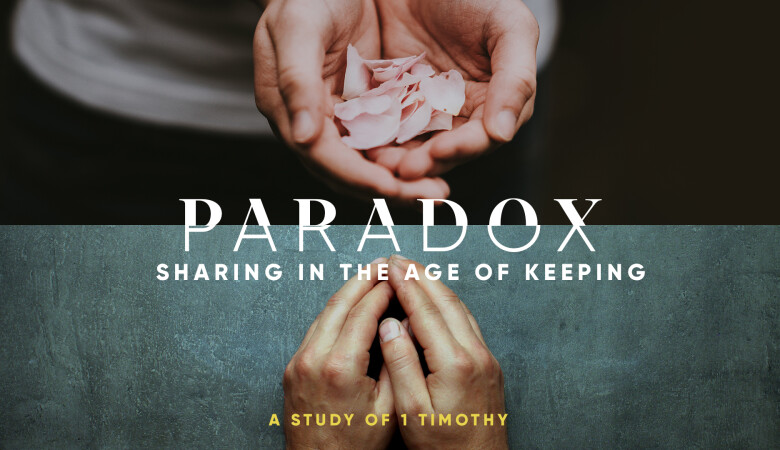Sermon Response Guide
PRIMARY SCRIPTURE: 1 Timothy 2:8-15
8 I desire then that in every place the men should pray, lifting holy hands without anger or quarreling; 9 likewise also that women should adorn themselves in respectable apparel, with modesty and self-control, not with braided hair and gold or pearls or costly attire, 10 but with what is proper for women who profess godliness—with good works. 11 Let a woman learn quietly with all submissiveness.12 I do not permit a woman to teach or to exercise authority over a man; rather, she is to remain quiet. 13 For Adam was formed first, then Eve; 14 and Adam was not deceived, but the woman was deceived and became a transgressor. 15 Yet she will be saved through childbearing—if they continue in faith and love and holiness, with self-control.
Key Points
- Men and women, boys and girls are all created in the image of God.
- The Holy Spirit gifts and empowers both women and men for gospel ministry.
- United in Christ Jesus, men and women are designed to better reflect God together than we do apart.
- In the Kingdom of God, men can learn from women and women can learn from men as we seek to build one another up in love.
- Jesus elevated women and released women to serve God for God’s greater glory.
- Paul thanked God for women who he considered co-laborers in gospel ministry.
- Our theology should always begin with the love of God revealed in Christ Jesus our Lord.
- Jesus Christ is the key to interpreting Scripture. Before assigning meaning to difficult passages in the Bible, we should stop and examine the life, words, and way of Jesus. If we arrive at an interpretation that counters the life and way of Christ Jesus our Lord, we have misunderstood the text.
- Other helpful aids in interpreting Scripture include (but are not limited to):
1) the cultural and historical context (Who was the original audience and what was happening in the time and place the text originated?)
2) the full canon of Scripture (How does the text compare to the overarching story of God woven throughout the Bible?)
Memory Verse
Ask God to write this word on your heart this week:
“Rather, speaking the truth in love, we are to grow up in every way into him who is the head, into Christ, from whom the whole body, joined and held together by every joint with which it is equipped, when each part is working properly, makes the body grow so that it builds itself up in love.”
-Ephesians 4:15-16 ESV
Questions for Reflection
Take time to reflect and respond to these questions on your own in the presence of the Holy Spirit, or with trusted friends or family members:
1: Read John 20:1-18. How would you describe the role of women in this story (specifically, the role of Mary Magdalene)?
2: Read John 4:1-42. How would you describe the role of women in this story (specifically, the role of the Samaritan woman)?
3: In these two examples, what is distinctive about the relationship between Jesus and these women?
4: In these two examples, what significance does the good news of Jesus play in the stories?
5: Read Romans 16 and identify the women in the chapter. *Answer key provided below
6: In view of Paul’s gratitude in Romans 16, which women have been significant in your own spiritual formation story? Make a list of the women’s names.
7: This week, reach out to the women you listed and thank them for the gift they are in your life.
Pray
Father God, thank you for the gift of your Son who saves us, and thank you for the gift of your Spirit who empowers us to proclaim the good news of your rescue. You alone are our rescue. Lord Jesus, we confess we have fallen into the enemy’s trap of perpetuating division and competition between men and women in the family of God. Forgive us. Teach us to love and to listen to one another as we pursue unity and collaboration in your name above all names.
references
For those interested in further study, our pastors want to share resources that have aided them in their sermon preparation (in conjunction with the Bible and the Holy Spirit):
· The Making of Biblical Womanhood by Beth Allison Barr
· Developing Female Leaders: Navigate the Minefields and Release the Potential of Women in Your Church by Kadi Cole
· The Blue Parakeet: Rethinking How You Read the Bible by Scot McKnight
· Women in the World of the Earliest Christians: Illuminating Ancient Ways of Life by Lynn H. Cohick
· Daughters of the Church: Women and Ministry from New Testament Times to the Present by Ruth A. Tucker and Walter L. Liefeld
· Extraordinary Women of Christian History: What We Can Learn from Their Struggles and Triumphs by Ruth A. Tucker
*Women in Romans 16
(See this article for more information.)
1: Phoebe (16:1) – a woman who is a deacon of the church at Cenchreae and the deliverer of Paul’s letter to the Romans
2: Prisca/Priscilla (16:3) – a woman who is a tentmaker and Paul’s co-laborer in gospel ministry who, along with her husband, risked her life for Paul, educated Apollos in Ephesus, and earned the gratitude of all the churches of the Gentiles (see Acts 18, 1 Corinthians 16, 2 Timothy 4)
3: Mary (16:6) – a woman who works hard in gospel ministry among the Romans (Paul uses the same Greek word to describe Mary’s labor in ministry as he does to describe his own labor in ministry)
4: Junia (16:7) – a woman who is a prominent apostle
5: Tryphena (16:12) – a woman who works hard for the Lord (like Mary, Paul uses the same Greek word to describe Tryphena’s labor in ministry as he does to describe his own labor in ministry)
6: Tryphosa (16:12) – a woman who works hard for the Lord (like Mary and Tryphena, Paul uses the same Greek word to describe Tryphosa’s labor in ministry as he does to describe his own labor in ministry)
7: Persis (16:12) - a woman who works very hard for the Lord and earns the name “beloved” (like Mary, Tryphena, and Tryphosa, Paul uses the same Greek word to describe Persis’ labor in ministry as he does to describe his own labor in ministry)
8: Rufus’ mother (16:13) – a woman who Paul values as his own mother
9: Julia (16:15) – a woman who is a saint (believer in Christ Jesus)
10: Nereus’ sister (16:15) – a woman who is a saint (believer in Christ Jesus)









